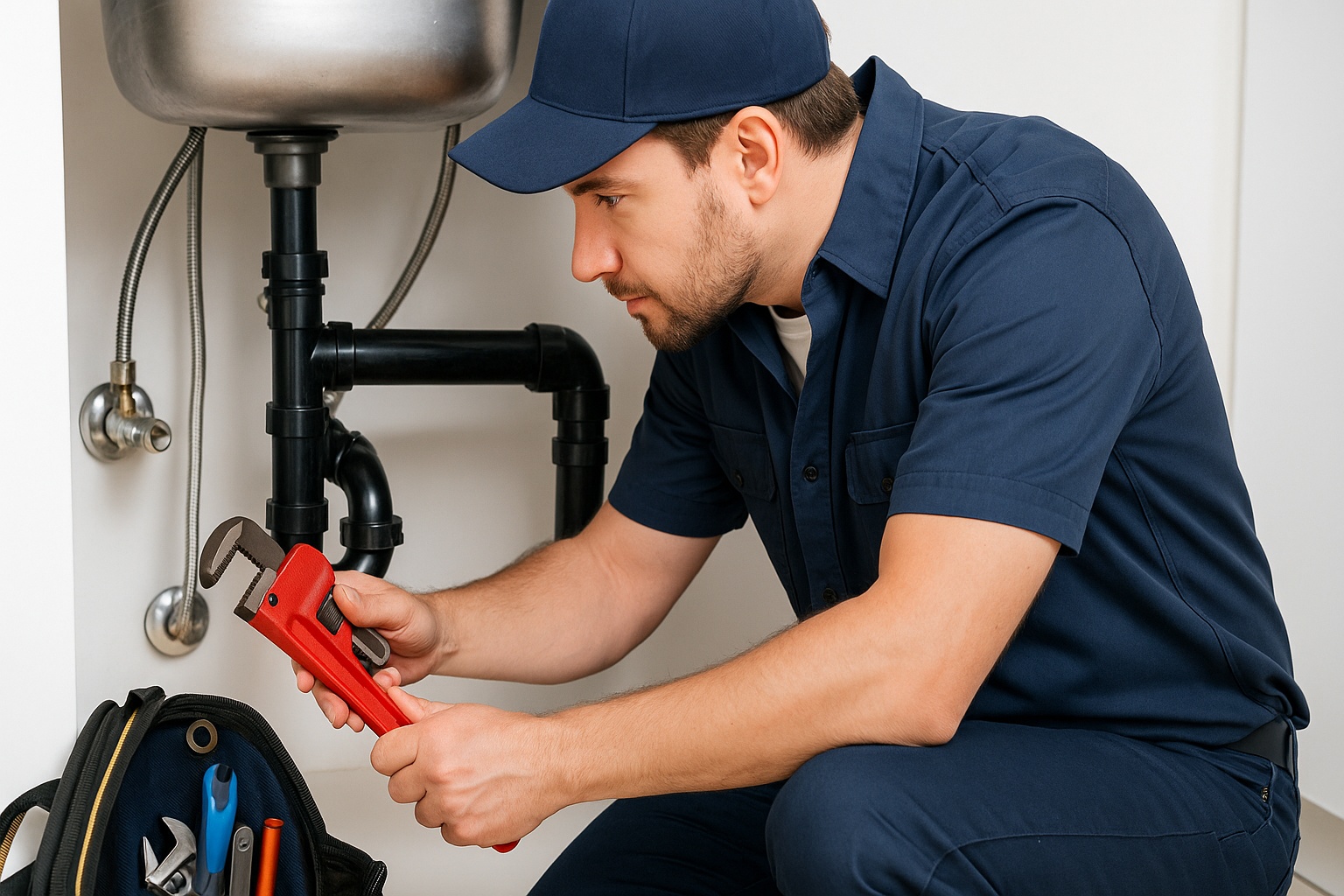Plumbing issues don’t always start with a flood — sometimes it’s just a slow drip, a weird gurgling sound, or a sudden drop in water pressure. But how do you know when to call in a plumber? In this article, we’ll cover exactly what a professional plumber does, the types of services they offer, and when it’s time to stop Googling and pick up the phone.
A plumber is a trained and licensed professional who installs, maintains, and repairs water supply lines, waste disposal systems, and related appliances in residential, commercial, and industrial properties. Plumbers work on pipes, valves, and fittings, water heaters, toilets, sinks, bathtubs, sewer lines, septic systems, and appliances like dishwashers and washing machines. From basic repairs to full-scale installations, plumbers handle the systems that keep your water flowing cleanly and safely.
Some plumbing problems just can’t wait. Emergency plumbing services cover urgent situations such as burst pipes, sewer backups, gas leaks, and major flooding. These services are often available 24/7 and are crucial for preventing water damage, mold growth, and safety hazards. When time is of the essence, emergency plumbers respond quickly and work efficiently to stop the issue before it escalates.
Homeowners call plumbers for a variety of reasons, but some issues come up more often than others. The most common plumbing problems include clogged drains, running toilets, leaking faucets, low water pressure, and malfunctioning water heaters. While these issues might seem minor, they often indicate bigger problems in your plumbing system. For example, a dripping faucet could signal high water pressure or internal valve wear. A licensed plumber doesn’t just treat the symptom — they diagnose and fix the root cause.
If you notice any of the following signs, it’s time to call a professional plumber: water stains on ceilings or walls, recurring clogs, gurgling drains, sewage smells, rust-colored water, or visible pipe leaks. Other red flags include inconsistent water temperature, unusually high water bills, and standing water around your home’s foundation. While some people attempt DIY fixes, plumbing systems are complex — and improper repairs can cause more harm than good.
When you call a licensed plumber, they will typically start with an inspection and diagnostic. After identifying the issue, they’ll explain the necessary repair or replacement and provide an estimate before starting any work. Professional plumbers bring the right tools, ensure the repair is up to code, and often provide warranties on their labor. Make sure your plumber is licensed, insured, and has good online reviews or local references.
Preventive maintenance is the key to avoiding expensive repairs. Annual plumbing inspections can catch small leaks or corrosion early. Flushing your water heater every 6–12 months helps prevent sediment buildup. Installing drain strainers and avoiding grease down the sink keeps your plumbing system flowing freely. By being proactive, you save money and extend the lifespan of your pipes and fixtures.
Understanding what a plumber does — and recognizing when to hire one — can save you time, money, and stress. Whether it’s fixing a faucet, installing a new water heater, or responding to a midnight pipe burst, professional plumbers keep your home safe and functional. When in doubt, call a trusted expert. It’s better to fix it right the first time than deal with a much bigger problem later.

